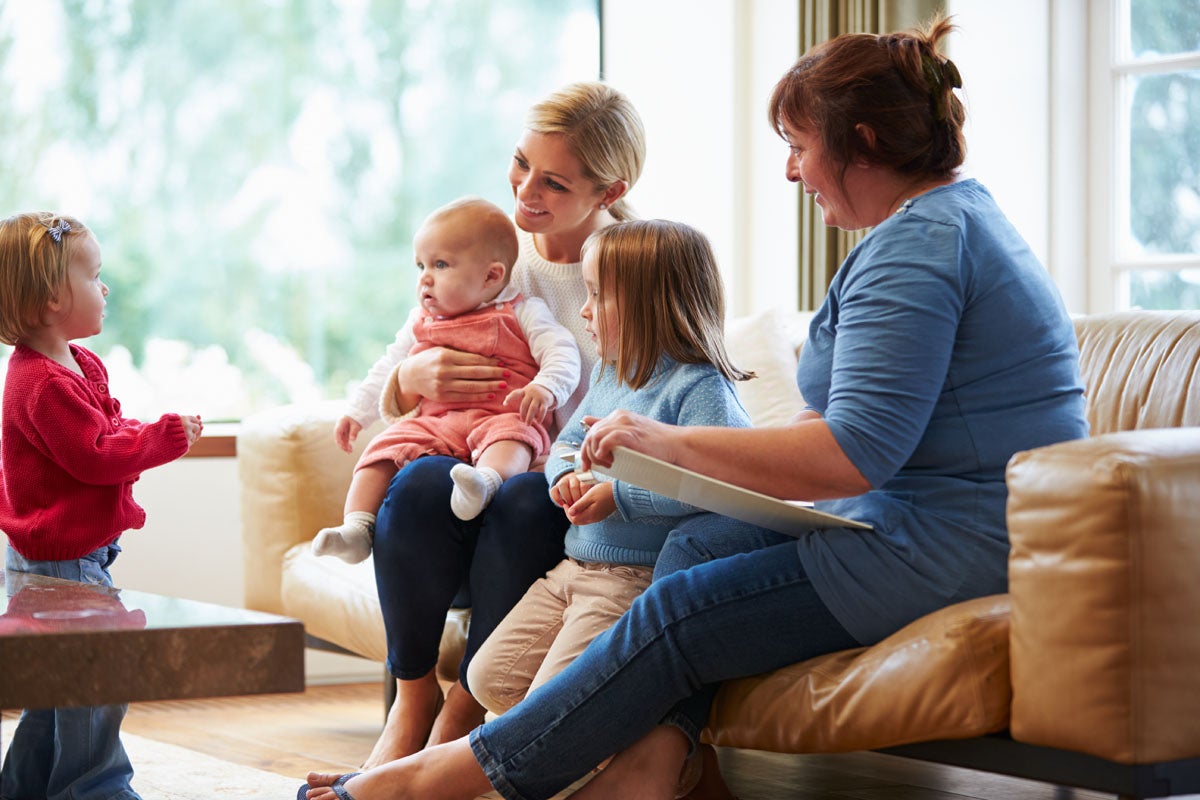Past Research Projects at the Centre
Increasing Communication via the Use of Speech Generating Devices for Children with Autism Spectrum Disorder: A Comparison of Aided Language Modeling and Incidental Teaching
Researchers: Meaghen Shaver, MSc., BCBA, Christiane Haberl, BSc. SLP, MADS, SLP Reg. CASLPO, and Dr. Beata Batorowicz, PhD Research Assistants: Alysha Eaton, CDA Student; Colleen Kelly, Master’s Degree in ABA Candidate
Study Description:
In this study, we are employing a parallel treatments research design (Gast & Wolery, 1988) to evaluate two approaches to teaching language production in children with Autism Spectrum Disorder who use speech-generating devices with speech output software such as an iPad with Proloquo2Go.
The two teaching approaches are Aided Language Modelling and Incidental Teaching. Both approaches involve the therapist setting up fun and motivating activities for the child to engage in. In the Aided Language Modelling approach, the therapist models the use of Proloquo2Go during play-based activities, with no expectation that the child copies the therapist’s actions. In an Incidental Teaching approach, the therapist models use of Proloquo2go and then helps the child copy the therapist’s actions by prompting, for example, pointing to a required symbol and then reinforcing the child’s communicative attempts.
At the end of the study, we hope to gain new knowledge on which of these two teaching approaches will result in faster learning of new symbol use in Proloquo2Go. A second question we will explore is whether certain children will benefit more from one intervention over the other based on their individual characteristics and skills.
Climate Champs Research Group
ONTABA Presentation, Shaver, Shea, Bird
Researchers: Brooke Gilmour, ESET, Meaghen Shaver, MSc., BCBA, Pam Shea, MADS, BCBA, Beth Sills, M.A.Sc., P.Eng., MBA, LEED AP
Purpose: To combine knowledge of climate change issues and the principles of applied behaviour analysis to create meaningful behaviour changes toward more sustainable living for people in our community.
So far this research group has engaged in the following three initiatives:
- Speaker Series Event – Behavioural Science meets Environmental Sustainability, March 20, 2019
- At this event, we reviewed facts about climate change and environmental sustainability and research on what behavioural science can contribute to creating the needed behaviour changes in people at the individual and societal level.
- Research Study - Changing energy consumption in SLC Residence using applied behaviour analysis and energy conservation technology
- In this study, we will employ data monitoring and management systems (e.g. Amana DigiTenna RF Antenna, DigiDoor Occupancy Sensor and DigiStat Thermostat Kit, in conjunction with the DigiSmart E-Z Link Controller) combined with procedures such as self-signaling, saliency, and other nudge approaches that are aimed at changing human/student behaviours (e.g. leaving windows open with heat still on, or leaving heat up when away for the weekend) in 99 of 600 SLC residence The other 501 units will serve as a control condition for the study. We envision, depending on the results of the study, expanding the program across all 3 campuses in years to come.
- Research Study – plant based foods in SLC cafeteria
- The goal of this research is to assess the impact self-signalling, reinforcement and, salience on plant based food consumption at the cafeteria on campus. The following paper will add to literature by exploring how a college can increase sustainable behaviour on a large-scale basis. The potential of conducting this research on three campuses will be explored as a strategy to increase the validity of this research. The integration of this sustainability project into existing projects will create a comprehensive climate for sustainability. The overall goal is to increase projects to create and maintain a sustainability culture within St. Lawrence College.
Using Relational Frame Theory to Examine Racial Prejudice; A Tool for Educators and an Appeal for Future Research
As higher learning organizations across Canada begin to acknowledge systemic and institutionalized racism through a series of equity statements and creation of policies to support more diverse and accessible learning environments, adult educators in the field of behavioural analysis have an opportunity to contribute to the analysis of racial bias and ways we can, as educators, begin to address it. Authors, Pamela Shea and Pamela Johnson reviewed literature on relational frame theory in the context of racial prejudice. They consider how this analysis could be integrated into pedagogy with an aim to better understand possible origins of racial prejudice, and how they might encourage deeper examination of personal and broader socio-cultural bias amongst students in their classrooms. The authors speculate why certain treatment approaches with respect to racial prejudice appear less effective and identify others that have potential but little empirical support. Submitted for Journal Publication.
Teaching Social Skills to Children with Autism Spectrum Disorder in Schools: A Comparison of Robot Delivered versus Human Delivered Intervention
The purpose of this research study was to evaluate how social skills can be most effectively and efficiently taught with children with Autism Spectrum Disorder (ASD). More specifically, we were interested in knowing how children learn social skills when taught by a robot (named Milo) versus when taught by a person. In order to determine if one therapy is better than the other, we wanted to compare children’s correct responses during social skills lessons with the robot and with a person. We were also interested in looking at other behaviours, such as eye contact and the types of comments your child makes during the lessons.
This research was a partnership with a local district school board in the 2019-2020 school year.
Curriculum Assessment and Intervention for Children with ASD in Schools
In partnership with Limestone District School Board, primary and secondary school students with autism spectrum disorder (ASD) who attend integrated or specialized school placements were provided curriculum assessments such as the Verbal Behaviour Milestones Assessment and Placement Program (VB-MAPP; Sundberg, 2008) or the Assessment of Functional Living Skills (AFLS; Partington & Mueller, 2012). Based on the results of the assessment, specialized teaching programs were developed for each student. Teachers and school staff attended a half-day training about the assessment tools, how to implement a program, and monitor progress. We also reassessed the students with ASD using the VB-MAPP or the A
FLS approximately six months later, which allowed for an analysis of what skills had been learned during that time.
This project was conducted over a two-year period and involved two faculty members, 16 Autism and Behavioural Science students on placement, 40 teachers/educational staff, and 19 school children with ASD. While the data collection component of this research project is now complete, we continue to provide this service and placement opportunity to our local school boards at their request, due to the high level of interest and success of the project.
Restructuring After Divorce (RAD)
RAD was a pilot project designed to provide cognitive behavioural group therapy for divorced or common-law separated parent and his/her children between ages 8-12. The goal of the program was to help improve the relationship between parents and their children, reduce the stress associated with being a divorced parent, and improve children’s coping and communication skills.
The program offered a free 11-week cognitive behavioural group therapy. Cognitive behavioural therapy is an evidence-based practice that focuses on changing dysfunctional thoughts, feelings, and behaviours in order to improve the mental health of individuals. By offering this therapy in a group setting, each individual gets the benefit of learning from other people experiencing similar situations.
The group met for eleven weeks, one section for parents and one for children. The groups were designed to discuss, learn, and practice behavioural skills that relate to stress management, communication, healthy boundaries, and trusting relationships. In addition, parents and children came together at the end of each session to practice skills learned and to improve the parent-child bond.

ABA Based Financial Literacy App through Apple iTunes U
A gamified financial literacy app was developed for Apple iTunes U, designed to create positive changes in college students’ financial behaviours. The project investigated the combination of applied behaviour analysis interventions and gamification to increase financial literacy.
The Good Behaviour Game
Four classrooms were provided training and materials to conduct the Good Behaviour Game over an eight-week period. Pre and post assessments of behaviour were conducted. Past research in this area shows significant positive behaviour changes to both student and teacher behaviours because of the introduction of the game. The purpose of this project was to replicate the game and add to the body of research that demonstrates this as a successful intervention in classrooms to target a reduction of interfering behaviours.
Communications Disorders Direct Service Delivery Program
A St. Lawrence College Communicative Disorders Assistance (CDA) placement student will implement a treatment program for a child in his home. Community and provider wait lists for language services are long. This service will help provide services to children that would not otherwise be available in a timely manner.
The Life Prep Course
A scan of community resources and programs highlighted that there are few services in our community for young adults with an ASD. In partnership with Hotel Dieu Hospital, a group of young adults living with an ASD and looking for opportunities to build skills in areas of leisure, community awareness, life skills, vocational skills, etc. were identified. This project endeavoured to help fill a service gap, support people in their transition to adulthood, and provide enhanced placements for St. Lawrence College AUBS Students.
During this project, students from the Autism and Behavioural Science Program completed curriculum assessments with eight individuals with ASD using the Assessment of Functional Living Skills - Community Participation Protocol. Given the results, a six- week group was created and delivered using Behavioural Skills Training and video modelling, with real world generalization opportunities. Participants learned the targeted skills and reported that they enjoyed the program. Six months later, three participants were reassessed to see if the learned skills were maintained and for all participants maintenance was demonstrated.

